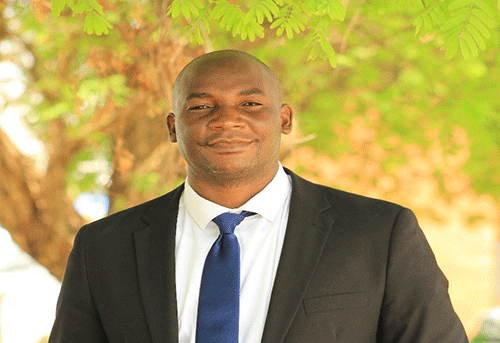Kennedy Mabuku
Against the backdrop of rising mental health crises, the Namibian Police confronts the stark reality that these issues often fuel criminal behaviour, compelling a paradigm shift towards integrated approaches that address both public health and crime prevention.
The traditional role of police has primarily focused on preserving internal security, maintaining law and order, preventing crime, and protecting life and property. However, the evolving public safety landscape has increasingly brought health-related issues to the forefront of police work.
This change is driven by a variety of factors, including the rise in mental health crises, substance abuse issues, and the public health implications of homelessness. Firstly, the Namibian Police officers are often the first responders to mental health emergencies, which can range from individuals experiencing acute psychiatric incidents, to those contemplating self-harm.
Without proper training, officers may struggle to manage these situations effectively, potentially leading to escalated violence or tragic outcomes. For instance, in Namibia, there have been cases where the lack of proper mental health intervention training has led to avoidable confrontations and, in some cases, tragic fatalities.
Consequently, inadequate handling of these emergencies has led to escalated violence or tragic outcomes, potentially resulting in criminal charges or further harm to individuals involved. Secondly, substance abuse issues require police to interact frequently with addicted individuals.
In Namibia, substance abuse, particularly among the youth, has been a growing concern. Notably, without the appropriate tools and knowledge, police officers may be unable to effectively address underlying issues, potentially perpetuating cycles of substance-related crime within communities.
Undoubtedly, police equipped with the right tools and knowledge can save lives on the spot, and guide individuals towards recovery programs, thus playing a crucial role in both immediate and long-term public health.
Thirdly, the police are often called to address issues related to homelessness, which can involve health-related concerns such as exposure, malnutrition and infectious diseases. Balancing enforcement with compassion and providing access to social services and healthcare support is essential.
In Windhoek, for example, police encounters with the homeless population often highlight the need for a more compassionate approach that prioritises health and safety over mere displacement.
It is worth noting that police involvement in addressing homelessness, particularly when health-related concerns such as malnutrition or infectious diseases are present, may inadvertently lead to the criminalisation of homelessness rather than addressing root causes.
Therefore, failure to provide adequate social services and healthcare support to homeless individuals may exacerbate their vulnerability, increasing the likelihood of engaging in criminal activities to survive.
Fourthly, the Covid-19 pandemic highlighted the necessity for police to assist in enforcing public health orders, supporting vaccination efforts, and ensuring community safety during health crises.
In extreme cases, enforcement measures lead to confrontations or civil disobedience, escalating into criminal acts or public disturbances. The Namibian Police played a critical role during the pandemic by enforcing lockdowns and curfews, while assisting in disseminating health information and facilitating vaccination drives.
Their involvement underscored the importance of police roles extending into public health domains, necessitating a blend of enforcement and community engagement skills. The fundamental question arises: should the police be trained as medical practitioners? While it is impractical to expect police officers to become fully-trained medical practitioners, there is a clear need for enhanced training in basic medical and mental healthcare skills.
Training in crisis intervention techniques, mental health first aid, and de-escalation strategies can empower officers to handle health-related emergencies more effectively and humanely.
Developing clear policies and protocols that outline the role of police in health-related situations, including when and how to involve medical professionals, can ensure appropriate responses.
The discussion on the role of police in public safety is directly linked to the decision by the inspector general of the Namibian Police, Joseph Shimweelao Shikongo and his top management, to encourage police officers to prioritise studies in social work and nursing as part of their policing careers.
Encouraging police officers to pursue social work studies and nursing aligns with the understanding that effective policing goes beyond traditional law-enforcement duties. Police officers with knowledge and skills in social work and nursing are likely to respond better to the complex needs of communities, providing holistic support and intervention where necessary.
While police officers should not be expected to fulfil the roles of medical practitioners, equipping them with the necessary skills and frameworks to address health-related issues is essential in the modern landscape of public safety.
* Kennedy Mabuku holds a PhD in Policing Practices and writes independently, separate from any security institutions. kennedymabuku@yahoo.com



